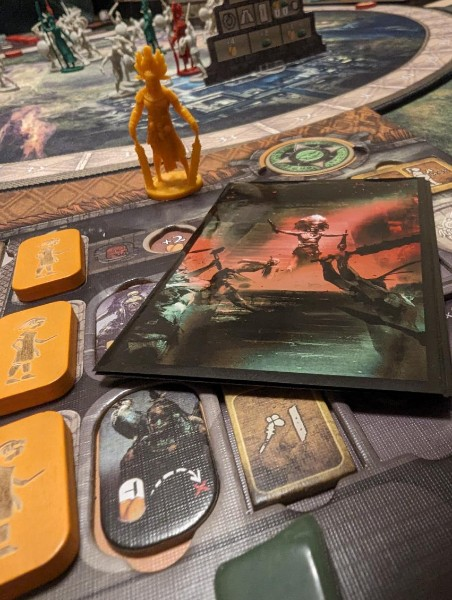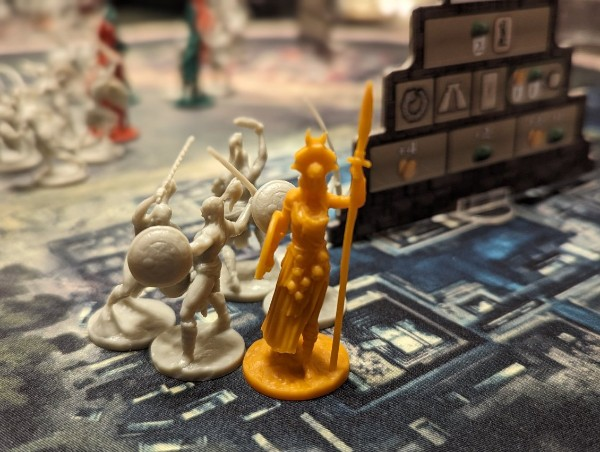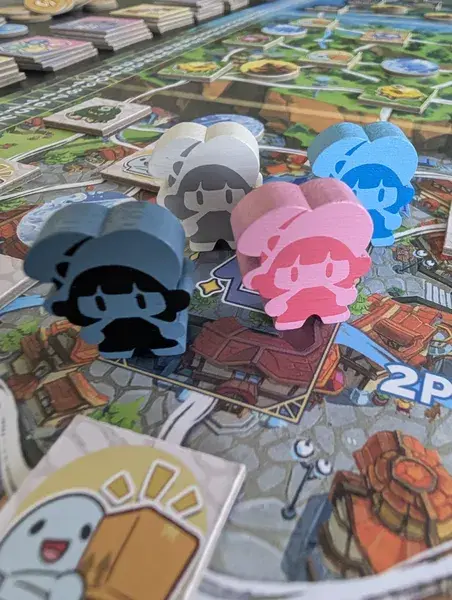Yucatan First Impressions
- Coty

- Jun 12, 2024
- 3 min read
Yucatan: A Mayan Melee
Forget sipping margaritas on the beach – Yucatan is all about sacrifices, brain-burning strategies, and seriously good-looking corn (seriously, those kernels had me craving elote the entire game).
Let's not sugar-coat it: if Matagot fixes the rulebook and sorts out a few component hiccups, this game could be incredible. For now, it's a strategic challenge for puzzle masters who enjoy a little Mayan mayhem. Think Kemet with a Ph.D. – if you are looking for a light and breezy game, this ain't it.
But hey, if you crave a challenge and have an awesome friends who can decipher the rulebook hieroglyphics, Yucatan offers a rewarding, albeit turbulent, ride. Be prepared for confusion, screaming, and head-scratching moments.
Glory for the Gods
The objective of Yucatan is simple: accumulate the most victory points by the end of the four rounds. Players achieve this by capturing prisoners, performing sacrifices to the Mayan gods, and developing their city. However, there's a unique twist: sacrifices become progressively more demanding. Each round, you need to offer a greater number of prisoners than the previous round to score points and climb the peculiar cake looking pyramid tracker. This agonizing decision of how many prisoners to sacrifice will test your prowess.
The game accommodates up to four players, with an expansion increasing the player count to six. While the combat might become more chaotic at higher player counts, the three-player game offers a more strategic experience with less emphasis on brawling. I'm curious to see this at a four player count.
Components: A Mixed Bag
Yucatan's components present a bit of a paradox. The giant pyramid and its accompanying miniature might be seen as unnecessary. However, the true stars of the show are the chunky jade and corn resource tokens. They are satisfyingly tactile pieces. The corn kernels, might leave you craving some elote (Mexican grilled corn)! Just be careful, their visual appeal might be a bit too tempting...
The good news doesn't stop there. The combat system is intriguing, forcing players to make difficult card choices with lasting consequences. You begin with five cards, and once used in battle, they're gone for ever. This element has you regretting your choices on which is the right cards for each encounter. The sacrifice mechanic is also well-implemented, albeit anxiety-inducing, as you constantly strive to outdo your previous offering to be able to progress on the evolution board.
Beware the Rough Edges
Before diving into Yucatan, be prepared for a challenge – and not just from the gameplay. The rulebook, components iconography, and player aids are riddled with errors and inconsistencies, making initial setup and learning the finer points of the game a very confusing endeavor. Expect to spend some time online deciphering the rules and resolving ambiguities. I hated that as one of my pet peeves is phubbing during board game nights.
Additionally, component quality varies. The aforementioned pyramid might be a love-it-or-hate-it situation, and the iconography is unclear. Furthermore, the prisoner miniatures lack identifiers. This requires vigilance during movement and battle to ensure your opponents know your mini count.
The Verdict: A Promising Mayan Puzzle
Despite its shortcomings, Yucatan offers a strategic worker placement and area control experience steeped in Mayan culture. The sacrifice mechanic adds a unique layer of planning, and the combat system is tense and engaging. The confusing rules and inconsistent components create a significant hurdle for new players.
Here's to hoping that the player aids will be amended and the rules will be clarified in future editions. With these improvements, Yucatan has the potential to be exceptional.
In the meantime, approach at your own risk or find a patient and wickedly awesome friend that can teach you the ropes.








Comments